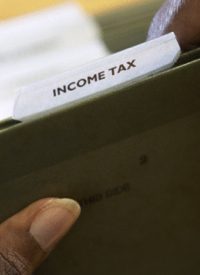
Texas pilot Joe Stack, who set his house on fire and flew his airplane into an Internal Revenue Service in Austin, Texas, on February 18, was motivated by frustration with tax-protest activities, according to his suicide note.
Stack left a 3,000-word suicide note chronicling his troubles with the IRS over the past 15 years on his blog, according to the Washington Post:
I saw it written once that the definition of insanity is repeating the same process over and over and expecting the outcome to suddenly be different. I am finally ready to stop this insanity. Well, Mr. Big Brother IRS man, let’s try something different; take my pound of flesh and sleep well.
A key part of Stack’s frustration with the IRS seemed to be his experience with self-professed “tax experts” who claimed they could find secret loopholes that would exempt Stack from income taxes:
Some friends introduced me to a group of people who were having "tax code" readings and discussions. In particular, zeroed in on a section relating to the wonderful “exemptions” that make institutions like the vulgar, corrupt Catholic Church so incredibly wealthy. We carefully studied the law (with the help of some of the “best,” high-paid, experienced tax lawyers in the business), and then began to do exactly what the “big boys” were doing (except that we weren’t steeling from our congregation or lying to the government about our massive profits in the name of God)…. That little lesson in patriotism cost me $40,000+, 10 years of my life, and set my retirement plans back to 0…. It also made me realize, not only how naive I had been, but also the incredible stupidity of the American public; that they buy, hook, line, and sinker, the crap about their "freedom.”
Stack had been led down a path to disappointment by being told he didn’t have a legal obligation to pay income taxes, and by all appearances didn’t intend to pay any more income taxes. "If Stack had intended to pay tax on the quarterly payment system, he would have had no advantage from getting out of withholding. Indeed, the paperwork burdens go up," University of Texas Law School Professor Calvin Johnson told the Austin American-Statesman. "I suspect he therefore had no intent to pay any tax, even when an independent contractor."
Rather than taking the more difficult task of lobbying Congress to repeal the income-tax laws, Stack had been sold a bill of goods by “experts” who falsely claimed they could find secret gnostic-like holes in the income-tax laws. Stack explained his experience of wasted time trying to prove income-tax laws didn’t apply to individuals, a movement sometimes called the “sovereign citizens” movement:
During 1987, I spent close to $5000 of my "pocket change," and at least 1000 hours of my time writing, printing, and mailing to any senator, congressman, governor, or slug that might listen; none did, and they universally treated me as if I was wasting their time. I spent countless hours on the L.A. freeways driving to meetings and any and all of the disorganized professional groups who were attempting to mount a campaign against this atrocity.
The New American cautioned readers about the danger of this very movement back in 1997, with an article by this author entitled “Patriot Beware.” While it has long been a futile and disappointing path to try to disprove existence of the obvious income-tax laws, perhaps those frustrated with the IRS will take note of Stack’s tragic example and turn their frustrations to a more fruitful effort, and will pool their resources to repeal both big-government spending and the repeal of the income-tax laws by Congress (as it had done in 1872).



